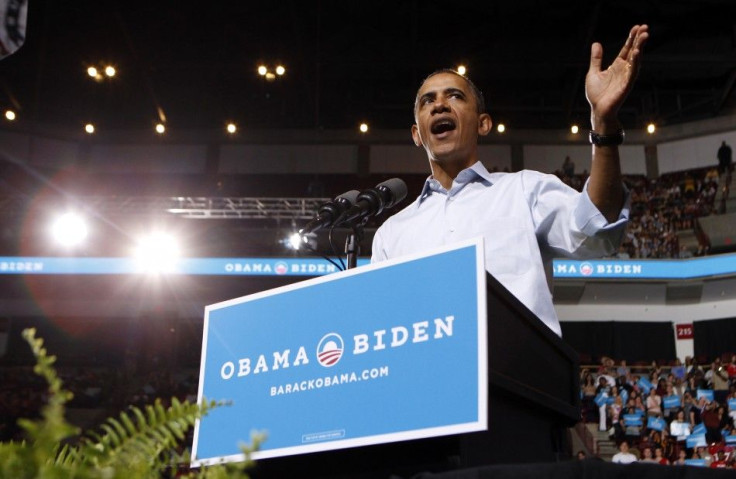Economic Concerns Divide Voters Between Obama And Romney

It has been assumed from the beginning that the 2012 presidential campaign will hinge on the economy, and a new Washington Post/ABC News poll finds voters split on whether President Barack Obama or Mitt Romney is better equipped to tackle the paramount issue.
Jobs and the economy was easily the most important consideration for respondents to the poll: more than half of the voters surveyed said it was the decisive factor in who they would vote for, compared to single-digit levels of support for every other issue. Statistically equal numbers of voters said Romney or Obama would be the best candidate to resuscitate the flagging economy and generate jobs.
Despite a halting but sustained economic recovery, voters' outlook remained grim and 83 percent of voters said the economy is poor or not so good, and 30 percent said they were faring worse than when Obama took office. Some 53 percent said their economic situation had remained about the same.
There was both a sense of resignation in the responses -- a plurality of people polled said they would be doing about the same if Romney had been elected in 2009 -- and a glimmer of optimism. People were more hopeful than anxious about both their personal finances over the next few years (58 percent to 38 percent) and about the economy (54 percent to 42 percent).
Obama continues to struggle with a tepid favorability rating, with slightly more voters disapproving of his performance (49 percent) than approving (47 percent). On the economy, the gulf is even wider, with 55 percent disapproving of the president's record and 42 percent backing him.
The poll did contain some positives for Obama. Voters chose him over Romney when asked to select which candidate understood their economic plight, which candidate shared their values and which candidate was more likely to stand up for what he believes in.
Those responses might not predict much -- throughout the Republican primary, voters consistently chose Romney's rivals when asked about which candidate shared their values or was a strong conservative, but the perception that he was the strongest on the economy and the most likely to defeat Obama still propelled him to victory.
Potentially more revealing was a question asking voters whether economic unfairness or excessive regulation was a bigger problem, options that neatly encapsulate Obama and Romney's respective pitches to voters. Respondents chose unfairness over regulation by a wide margin, seeming to validate Obama's argument that economic inequality, or a political platform that favors the wealthy while cutting social programs, represents the defining issue of the election.
The divide has surfaced most recently when Newark Mayor Cory Booker, a Democrat, decried the Obama campaign's attacks on Romney's investment firm Bain Capital. The Obama campaign has stood behind its criticism, saying Bain's work of restructuring companies to make them more profitable was exploitative and often came at the expense of American workers.
© Copyright IBTimes 2025. All rights reserved.





















